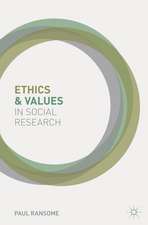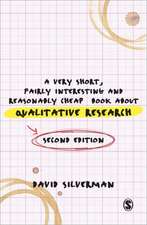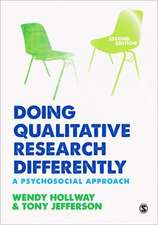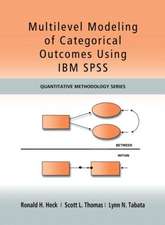The Professional Stranger – An Informal Introduction to Ethnography
Autor Michael H. Agaren Limba Engleză Hardback – 20 iun 1996
Analyses the changes in ethnographic studies during the last fifteen years
Outlines the conflict between science and interpretation
Presents the politics of ethnography, both personal and global
Describes the 'new' participant observation
Sheds light on ethno-logic
Includes methods for the non-positive
Preț: 237.64 lei
Nou
Puncte Express: 356
Preț estimativ în valută:
45.51€ • 46.89$ • 38.13£
45.51€ • 46.89$ • 38.13£
Carte disponibilă
Livrare economică 01-15 februarie
Livrare express 21-25 ianuarie pentru 24.82 lei
Preluare comenzi: 021 569.72.76
Specificații
ISBN-13: 9780120444700
ISBN-10: 0120444704
Pagini: 276
Ilustrații: Illustrations
Dimensiuni: 152 x 229 x 16 mm
Greutate: 0.39 kg
Ediția:Revised
Editura: Elsevier
ISBN-10: 0120444704
Pagini: 276
Ilustrații: Illustrations
Dimensiuni: 152 x 229 x 16 mm
Greutate: 0.39 kg
Ediția:Revised
Editura: Elsevier
Cuprins
Ethnography Reconstructed: The Stranger at Fifteen. The Concepts of Fieldwork. Getting Started. Who Are You to Do This? Ethnography. Beginning Fieldwork. Narrowing the Focus. Informal to Formal: Some Examples. The Ethnographic Research Proposal. Ethnography in Context.
Recenzii
"Agar's writing is lively and informal. He conveys the excitement of his subject while candidly sketching some of the ambiguities and problems that will challenge future ethnographers."
--CHOICE
"An intriguing and exciting little book... The range of methodological issues covered by Agar is impressive and thorough. Moreover, although he writes primarily for students in anthropology, Agar weaves into his discussion important methodological texts and articles from many social science disciplines, thus making his volume a concise reference for guiding students to further reading on particular issues. The excitement of the book is enhanced also by the diversity of research projects in which Agar has been involved as an ethnographer.... There are points of contention that could be raised about the book, and Agar frequently acknowledges that his position on certain issues is debatable. He also intended the book to set up issues 'clearly enough so that other enthographers can agree or argue. In this, he succeeds. As an 'informal introduction, the book covers more ground than the subtitle suggests, ground enough to serve as an important stimulus and guide for students of ethnography both in sociology and in other social disciplines."
--CONTEMPORARY SOCIOLOGY
"This book is one of the strongest in the field... The book appeals to an audience that grown considerably beyond anthropologists."
--JOHN GUMPERTS, University of California, Berkeley
--CHOICE
"An intriguing and exciting little book... The range of methodological issues covered by Agar is impressive and thorough. Moreover, although he writes primarily for students in anthropology, Agar weaves into his discussion important methodological texts and articles from many social science disciplines, thus making his volume a concise reference for guiding students to further reading on particular issues. The excitement of the book is enhanced also by the diversity of research projects in which Agar has been involved as an ethnographer.... There are points of contention that could be raised about the book, and Agar frequently acknowledges that his position on certain issues is debatable. He also intended the book to set up issues 'clearly enough so that other enthographers can agree or argue. In this, he succeeds. As an 'informal introduction, the book covers more ground than the subtitle suggests, ground enough to serve as an important stimulus and guide for students of ethnography both in sociology and in other social disciplines."
--CONTEMPORARY SOCIOLOGY
"This book is one of the strongest in the field... The book appeals to an audience that grown considerably beyond anthropologists."
--JOHN GUMPERTS, University of California, Berkeley
Descriere
This new edition of a classic introductory text opens with an extensive chapter that brings ethnography up to date and aims it toward the next century. Agar shows how the fundamentals endure even as they adapt to a world unimagined when the research perspective developed more than 100 years ago.
















